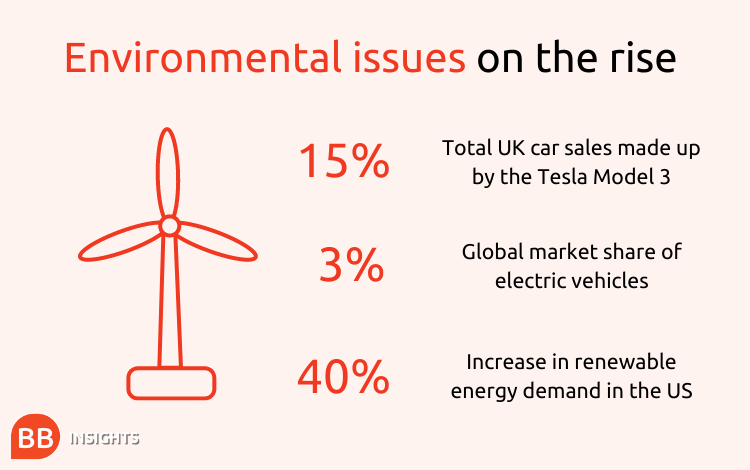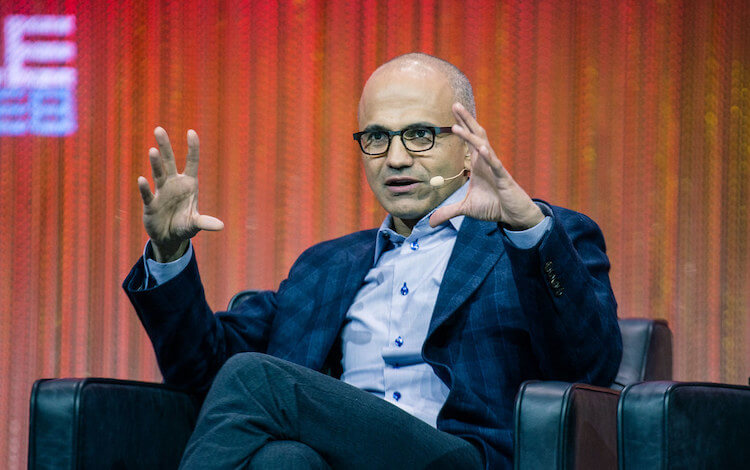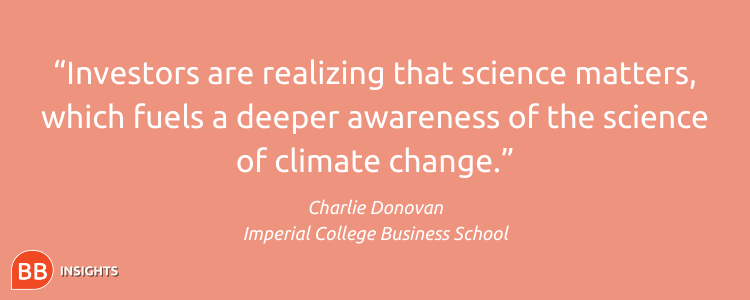The Tesla Model 3—the high tech, electric sedan car from the Californian electric vehicle startup Tesla. And in April and May 2020, the best-selling car in the UK.
The market share of electric vehicles (EV) has surged during the COVID-19 pandemic to a record-high of 3% globally. It’s as high as 17% in countries like the UK.
This phenomenon doesn’t stop at cars. Demand for renewable energy and clean technologies has increased during the pandemic. In the first 10 weeks of lockdown, while global energy demand dropped by 8%, the US saw renewable energy consumption increase by 40%. India saw a 45% increase.
Environmental issues have dominated the agenda and emerged from the rubble of 2020 with renewed importance and urgency. COVID-19 been a catalyst for interest in environmental issues in three ways.
It has changed our attitude towards environmental issues
In most cases, reducing your carbon footprint during the lockdown hasn’t been a choice. International flights have ground to a halt, driving has been limited to short and necessary excursions, and many of the global supply chains that contribute to carbon emissions have been disrupted.
It seems for many, changing consumer behaviors around the environment has been an active choice: a result of a change in attitude.
The pandemic has shown the disruptive impact of business. Global supply chains and international travel may have sped up the spread of the virus, and contribute to an increase in carbon emissions. This is perhaps registering for many people business’s association with the increasing threat of climate change.

Source: World Economic Forum, International Energy Agency
“There’s a deeper level of awareness that there are some unavoidable truths about business and its impact on society,” explains Charlie Donovan, executive director of the Center for Climate Finance at Imperial College Business School. Having worked as the head of structuring and valuation for alternative energy at BP, Charlie now heads up the MSc in Climate Change, Management, and Finance at Imperial.
Aoife Brophy Haney, departmental research lecturer in innovation and enterprise at Saïd Business School and the Smith School of Enterprise and the Environment at the University of Oxford, believes the pandemic has triggered people to re-engage with their local environment in a different way than they did before.
“There’s a sense of being more aware of your surroundings, particularly to local environmental issues. The world has stopped, and your local context becomes so much more important. You start to connect with places that you didn't necessarily do in your normal routines,” she suggests.
This goes beyond sharing pictures on social media of animals reclaiming urban areas during lockdown—goats reclaiming the streets of Llandudno in Wales, or fish returning to the canals of Venice.
A radical upheaval of society to stop climate change may have previously seemed impossible. The magnitude of the task on a global scale is daunting. But now, the shared experience of lockdown has demonstrated to people that locally, a different way of life in which environmental values rank highly is possible. The cumulative effect of local effort on a global scale could be huge.
“It comes down to how you think about the future. We’ve seen different versions of the future that are now possible, that weren’t really on people’s radars before something like this actually happened,” Aoife says.
It has shown the resilience of renewable energy during a crisis
COVID-19’s impact on certain industries will be long term, if not permanent, like the devastating effect on the arts and retail sectors; but lockdown has also opened a window for innovation when it comes to addressing climate change.
Aoife’s research focuses on new business models and forms of collaboration between different organizations (public, private and non-profit) that are required to support sustainable system transformations.
She has seen plenty of examples of how renewable energy offers a solution to uncertainty which fossil fuels don’t. One great benefit of ‘off-grid’ renewables, such as solar panels, is that they are decentralized—tapped directly from the environment to your own power grid—and thus not reliant on global supply chains that fossil fuels use.
She cites examples of farmers working in sub-Saharan Africa using off-grid renewables for irrigation, meaning they are less vulnerable in the face of energy shortages and disruption surrounding the pandemic. This same logic has applied to many healthcare centers in Africa which are now solar-powered.
“With something like renewables, decentralized solutions are rising to prominence because people are aware that we need more resilience in the face of disruptions and shocks,” Aoife says.
It’s also shifted the electric vehicle debate. Aoife points out how increasing demand for deliveries (either groceries or online shopping) has caused carbon emissions from freight transport or trucking to increase. Wider use of electric delivery vehicles would have softened that impact. The value of electric vehicle companies is clear. Nikola, an electric trucking vehicle company and one of Tesla’s biggest competitors in the EV market, is now valued at around $13 billion.
This comes back to Aoife’s idea about opportunities for alternatives in the face of mass disruption. “It’s an example of this different version of the future and is a big leverage point for policy makers as something they can actually tackle.”
It’s shown why we need to restructure businesses around ESG

Microsoft CEO Satya Nadella | ©KMERON via Flickr
For many companies, the pandemic has been a great exercise in resilience: something Aoife hopes has acted as a trial run for the coming challenges that climate change will pose.
“The pandemic has been helpful for the climate because there's this kind of this microcosm of experimentation that's going on. We can see the types of things we need to be doing, at scale and speed, in the coming years,” she explains.
For Charlie from Imperial College Business School, this is the perfect opportunity for companies to restructure their businesses around environmental issues—embracing the so-called ‘triple bottom line’ that considers environmental, social, and corporate governance (ESG) factors to be as important as financial targets.
ESG is using environmental, social, and governance factors to evaluate companies on how advanced they are with sustainability. This includes how companies buy energy and how their supply chain impacts the environment.

He points to Microsoft, who recently pledged not only to reach carbon zero, but also to neutralize all historic emissions. Cynics might accuse the company of ‘greenwashing’—conveying a false impression or misleading information about how a company or product is environmentally sound.
Charlie believes it’s far more impactful than that. “Microsoft knows that it's about more than just good accounting—it's about fundamentally changing the way that they buy energy.”
As companies pay heed, so too will investors, Charlie hopes. “Investors are realizing that science, like public health, matters, which fuels a deeper awareness of the science of climate change.”
The long term impact of COVID-19
Renewable energy demand and EV sales have been steadily rising in recent years: in this sense, COVID-19 has accelerated trends and interest in environmental issues which were already picking up speed.
But not everything will remain in its pandemic state. Airports are up-and-running again as tourism gets back on its feet, while already air pollution in major cities like London is back at a high level. Businesses and governments pray the pandemic will end, and it will. When it does, industries will need to return to normal as those that have struggled fight to recover and thrive in the years to come.
If there's a silver lining to the pandemic it's that we've seen the positive impact on the environment when industry slows down, when we fly less, and focus our consumer habits on local business. Time will tell whether this has a lasting impact on our mentality towards the environment. It should.
Read next: 4 Steps Business Schools Must Take To Tackle Climate Change
BB Insights explores the latest research and trends from the business school classroom, drawing on the expertise of world-leading professors to inspire and inform current and future leaders



